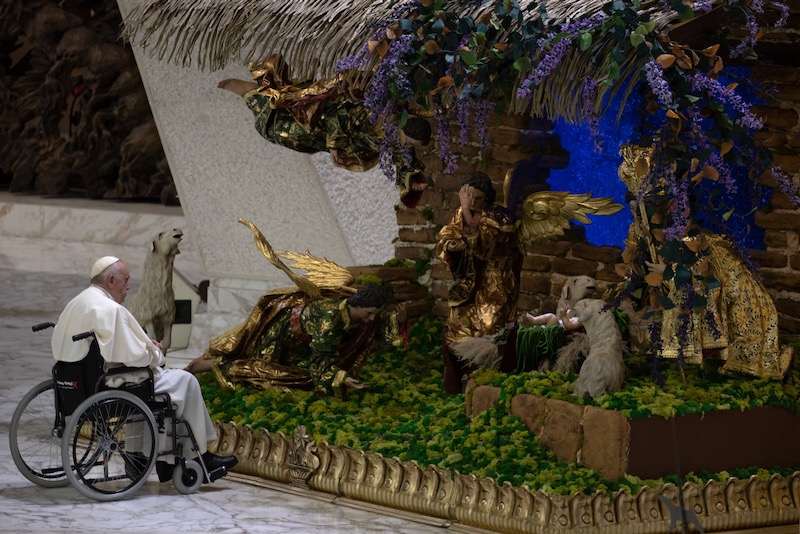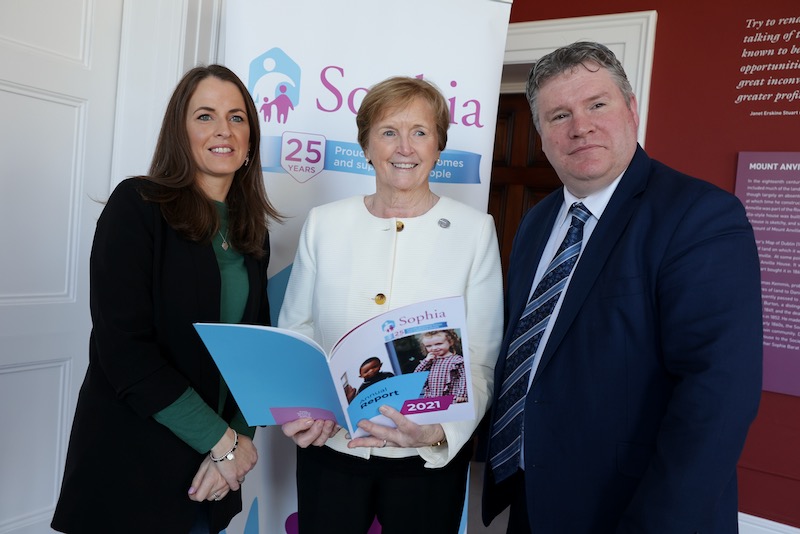The Catholic Church’s celebration of World Day of Peace on 1 January saw prayers for peace in parishes and the call from Pope Francis “to work for peace together” being promoted in parishes such as St. Dunstan’s and St Hugh of Lincoln Catholic parishes in Woking. Pax Christi England and Wales advertised Peace Sunday on 15 January 2023 offering a link to resources and information on its website. Pax Christi Scotland offered a New Year Resolution to promote gender equality. It tweeted: “We aren’t on track to achieve gender equality and gender violence continues to grow. May a resolution for 2023 be promote to our sisters’ rights, to speak out against social media misogyny, and to support women’s organisations that support victims of violence.” Other commitments were to step up initiatives to reduce weapons of mass destruction and to welcome refugees. Christian CND released a new resource called “Peace Be With You”, helping young people explore what it means to be a peacemaker today. Cafod tweeted that in his World Peace Day message, “Pope Francis reflects on the impact of the global pandemic and the need to pursue the common good, so laying the foundations for a more just and peaceful world.”
In his message for World Day of Peace, the head of the Irish Church paid tribute to the Good Friday Agreement which he described as “an immense historic achievement which involved openness, sacrifice and risk taking”. In his homily at St Patrick’s Cathedral Armagh on New Year’s Day, Archbishop Eamon Martin said the agreement provided an opportunity for a new beginning in Northern Ireland after “an awful period of death, injury, family trauma, devastation of property and livelihoods”. He highlighted that 2023 marks the 25th anniversary of the signing of the ground-breaking accord. “It is vitally important to acknowledge and give thanks for the lives and livelihoods that have been saved,” he said. In their joint message for the New Year, Church leaders from Christian denominations in Northern Ireland expressed great concern for the state of the fragile peace on the island of Ireland. “We are more aware than ever that the work of peace is unfinished,” Archbishop Martin said.
The Bishop of Dunkeld, Stephen Robson, has retired at the age of 71 on grounds of ill health. The Vatican announced on 28 December that the Pope had accepted his request to resign before the mandatory retirement age of 75. Bishop Robson said that he was “sad to have to come to the conclusion that I no longer have the strength necessary to carry on effectively shepherding the diocese”. He said that he left the diocese, which includes Dundee and much of eastern Scotland, “in relatively good shape”, and said he was confident that “a good, younger and fitter priest will be selected by the Pope”.
A woman was arrested and charged in December for breaching an abortion clinic’s “buffer zone”. Isabel Vaughan-Spruce, the director of March for Life UK, was arrested on 6 December outside the BPAS Robert Clinic in Birmingham, and subsequently charged with four counts of breaching a Public Space Protection Order introduced around the site by Birmingham City Council in September.
Church charities are highlighting that among those facing a bleak financial situation as prices increase are asylum seekers who are generally given less than £6 a day to live on. In addition, they are unable to work and earn additional income while their applications are being processed. Mauricio Silva, a lay worker with Columban missionaries who is Coordinator of Fatima House in Birmingham, a partnership project serving female asylum seekers, told The Tablet this week that at Fatima House, “we increased the amount of the weekly allowance we distribute from our destitution fund and are redoubling efforts to appeal for donations of toiletries and basic food, which can help them save a little from their allowance.” He was thankful that, “local parishes, groups and individuals are always ready to help us.” And he reflected that, “among refugee friends, we have noticed that many are struggling to make ends meet and having to make difficult decisions between feeding their families and paying bills.” He knew of some living on the verge of destitution, “running into debts and arrears with rental, housing, council tax and energy bills.”
Sophia, a national homeless charity founded by Sr Jean Quinn 25 years ago, supported 1,145 people in 2021, including 241 families and 576 children. In just five years Sophia has increased the number of people it supports by 125 per cent. The charity works with people who have complex support needs. Last year 28 per cent of the adults supported by Sophia had an addiction and 34 per cent had a mental health support need. Just one per cent of those supported returned to homelessness. Speaking at the launch of Sophia’s annual report, chair Michael McCarthy highlighted the role of the charity’s partnerships with the Department of Housing, Local Government and Heritage as well as religious congregations who have donated the lands and buildings that will be “reimagined as homes for the most vulnerable” at a time when they are needed most.
The Irish Minister for Children, Roderic O’Gorman, has said primary school students should be taught about what it means to be transgender. The Green Party minister told the Irish Independent it was important to refine the school curriculum to ensure pupils “are getting an understanding of diversity”. His comments were made as a new framework on what primary school children learn in school is set to be published by the Minister for Education, Norma Foley, this year. Changes to the curriculum would see primary schools spending more time teaching foreign languages and wellbeing, and less time teaching religion. A report by the state’s advisory body, the National Council for Curriculum and Assessment, has recommended that the time spent teaching religion should be cut and that religion would include ethical and multi-belief education.
The outgoing Master of the Rotunda Hospital in Dublin has said that 95 per cent of parents whose babies are diagnosed at the hospital with Down syndrome choose to have an abortion. In an interview with the Irish Times, Professor Fergal Malone underlined that the hospital does not advocate for abortion but added, “The reality is that the vast majority choose to terminate.” Most women who opt for abortion travel to Britain as the test to confirm a diagnosis of Down syndrome usually takes place at 12 weeks which is the cut-off for legal abortion under Irish law. Under the 2019 legislation, abortion after 12 weeks is legal only in specific circumstances such as a fatal foetal anomaly, which Down syndrome is not. According to Down Syndrome Ireland, one baby out of every 444 births is born with Down syndrome. Professor Malone also called for the removal of the three-day wait period mandated in the 2019 legislation before a woman can go ahead with an abortion.
Jesuit Fr Peter McVerry has expressed deep concern over the record number of people who are homeless in Ireland. Speaking on the RTE Radio 1’s This Week programme, the homelessness campaigner called for the ban on evictions, which is in place until March, to be extended for up to three years. The homeless figure in Ireland rose from 10,975 people in September to 11,397 people in November. Fr McVerry said the number of homeless people dropped by almost 1,000 during Covid due to the eviction ban. He called for the country’s 16 local authorities to look at vacant properties as a potential source of thousands of new accommodation units for those locked out of the rental market.
The international Society for the Study of Christian Spirituality (SSCS) has elected Fr Michael O’Sullivan as its new president. Fr O’Sullivan is the first ever Jesuit, and only the third European, to be elected to the position in the thirty-year history of the society. While the emphasis of the SSCS is Christian spirituality, it seeks to foster creative dialogue with non-Christian traditions of spirituality. Membership includes academics, artists, pastors, practitioners, and those in the helping professions. The Irish priest’s appointment is seen as a recognition of the work he has done in the academic discipline of spirituality in higher education and the professions during the last twenty years. He is the director of the Spirituality Institute for Research and Education, a charitable trust, he co-founded with Dr Bernadette Flanagan PBVM in 2015.
A leading Catholic organisation in Scotland has changed its constitution to ensure that lay people are in the majority on its board of directors. The Scottish Catholic International Aid Fund will in future have four lay directors out of a board of seven. Archbishop Leo Cushley and Bishop John Keenan of Paisley have withdrawn from the board, which is chaired by Bishop Brian McGee of Argyll and the Isles. They have been replaced by Sheriff Joseph Hughes and Diane Burke. SCIAF’s director of public engagement Penelope Blackwell said that there had been “a number of changes to SCIAF’s constitution recently, the most notable being that the Bishops’ Conference [of Scotland] has decided that bishops no longer need to make up a majority of our board.” She described SCIAF as a “very well-run organisation with strong governance structures” and said that the changes would “increase our board’s diversity, welcome more lay people and, it’s hoped, may also see more members from the global south join us in the future . . . but also more women”. The new lay members were welcomed to the board at a meeting last year.



 Loading ...
Loading ...